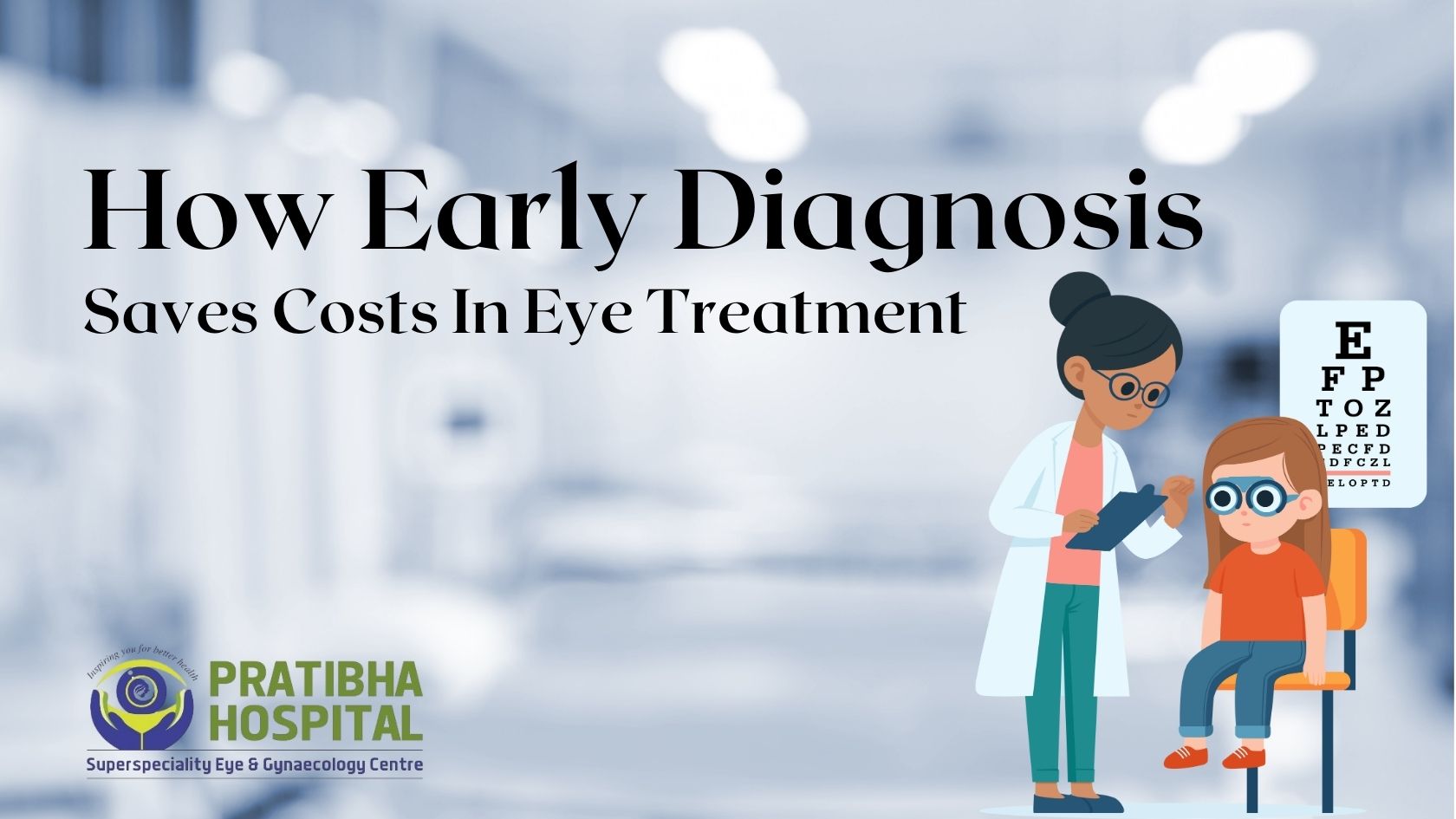How Early Diagnosis Saves Costs In Eye Treatment
Our eyes are one of the most precious parts of our body, yet many of us tend to delay care until something feels seriously wrong. We often brush off blurry vision or occasional eye strain as side effects of stress or screen time.

But here’s the truth: spotting the problem early can make a world of difference. Not only can it help preserve our vision, but it can also save us from complex procedures and heavy expenses down the road. That’s where early diagnosis truly matters.
Common Symptoms People Overlook
It’s easy to miss the warning signs. Symptoms of eye disease don’t always show up with pain or dramatic changes. Instead, they can start subtly. Maybe your eyes feel dry more often, or you notice floaters when you look at a bright wall. Perhaps driving at night has become difficult, or you’re more sensitive to light. These symptoms may not stop your day, but could be early indicators of a deeper issue.
Paying attention to these symptoms of eye disease is essential. Something as common as blurry vision might not just be about needing glasses—it could signal cataracts or early glaucoma. The earlier these signs are caught, the better the outcome, both for your eyesight and your pocket.
The Cost Of Waiting
Waiting until things get worse can be risky. Let’s say someone has mild blurry vision and ignores it. Over time, it progresses, and by the time they finally see an eye specialist, the condition might have worsened significantly. What could have been treated with simple medication or lifestyle changes now requires surgery or long-term therapy.
An early visit to an eye specialist could have prevented that. Timely diagnosis often opens the door to simpler, less expensive treatments. Postponing care may not just affect your health—it can hit your finances hard too.
Why Early Diagnosis Matters
When we talk about the importance of early diagnosis in eye care, we’re not just speaking medically; we’re talking about peace of mind. Certain conditions, like glaucoma, develop gradually and show no symptoms until major damage has occurred. Diabetic retinopathy sneaks in quietly, slowly damaging your eyesight before you even notice, making it all the more important to catch it early.

Detecting these problems early means you have options. Cataracts, if caught soon, can be managed with glasses or monitored over time instead of needing surgery right away. With glaucoma, pressure-lowering drops started early can prevent vision loss. The importance of early diagnosis in eye care can’t be overstated—it turns what could be a crisis into something manageable.
Also read: How Your Eyes Show Signs Of Vision Problems
Eye Exams: Not Just For Seniors
Many people think eye problems only happen as we get older, but that’s not always true.
The truth is, everyone—from children to adults—needs regular eye checkups. Kids may have trouble reading the board in class but never mention it.
Teenagers often spend hours on screens—whether studying, chatting, or gaming. It may feel normal, but all that screen time can quietly tire the eyes. Eye strain, headaches, or blurry vision are little warning signs asking for a break. It’s not about giving up screens—it’s about listening to what your eyes are trying to tell you and caring for them early. Spending long hours in front of a laptop can really tire out your eyes, leaving them feeling strained and uncomfortable.
Regular exams catch these problems before they grow. Even if you don’t have noticeable symptoms, an eye exam can uncover issues early. It’s preventive care that helps avoid bigger concerns later.
How To Recognize When To See A Specialist
Wondering when it’s time to search for an “eye specialist near me”? Here’s a quick guide:
- Sudden changes in vision
- Frequent headaches
- Eye pain or redness
- Increased sensitivity to light
- Trouble seeing at night
- A family history of eye disease
Even one of these signs is enough to get checked. Don’t wait for multiple symptoms to appear. Sometimes, all it takes is a little step—booking that eye checkup or really tuning in to how your eyes feel—to start a journey toward clearer vision, comfort, and peace of mind.
It’s not about big moves, just a quiet nudge in the right direction. Sometimes, that gentle first step is exactly what your eyes need most.
Prevention Is Always Cheaper
Prevention is always more affordable than treatment. A simple eye exam might feel like an unnecessary expense now, but it can save you from the high costs of surgeries, long-term medications, or advanced vision aids later.
Early diagnosis helps catch issues before they escalate, reducing not just financial strain but also emotional stress and time away from work. It helps you stay independent and enjoy every moment of life.
Choosing to care for your eyes early isn’t just a health decision—it’s a smart, future-focused choice that saves money, worry, and effort in the long run. Prevention truly pays off.
Conclusion
Our eyes speak to us long before things become serious. They show signs—we just need to pay attention. By recognizing symptoms of eye disease early and visiting an eye specialist when needed, we not only protect our vision but also ease future financial burdens.
The importance of early diagnosis in eye care lies in its ability to prevent, protect, and preserve your sight and your peace of mind. So next time your eyes feel off, don’t brush it aside. Early action is the best care you can give your vision.







